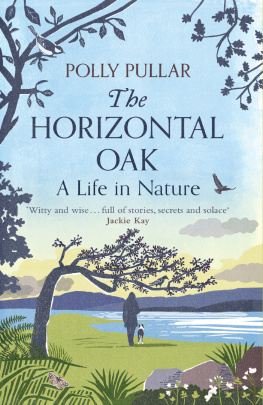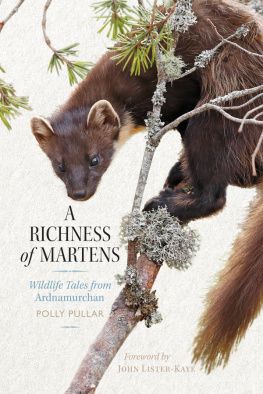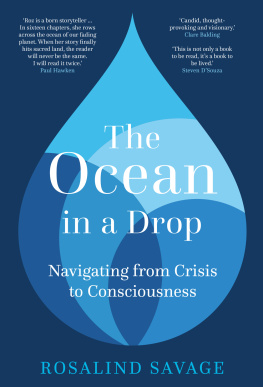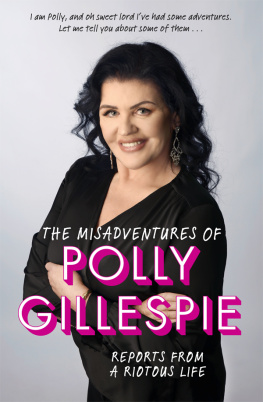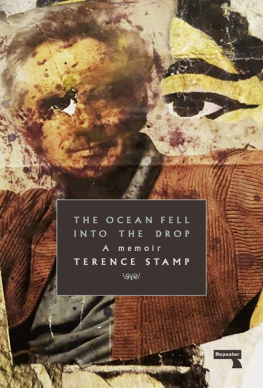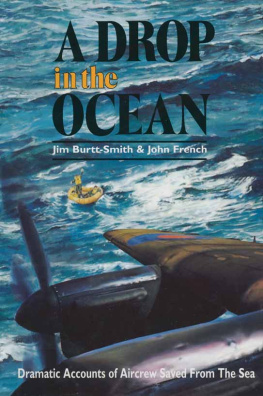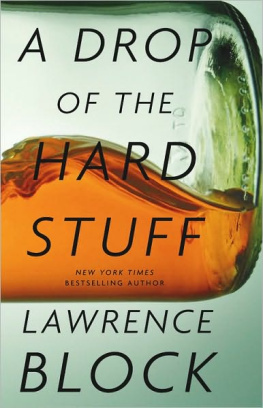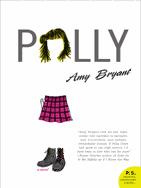First published in 2014 by
Birlinn Limited
West Newington House
10 Newington Road
Edinburgh EH9 1QS
www.birlinn.co.uk
Copyright Polly Pullar 2014
Foreword copyright Mark Stephen 2014
Black and white photographs reproduced courtesy of the MacEwen family, Clare Walters and the Isle of Muck and Eigg archives.
Colour photographs copyright Polly Pullar.
The moral right of Polly Pullar to be identified as the author of this work has been asserted by her in accordance with the Copyright, Designs and Patents Act 1988
All rights reserved.
No part of this book may be reproduced, stored or transmitted in any form without the express written permission of the publisher.
ISBN 978 1 780127 236 8
eISBN 978 0 85790 822 3
British Library Cataloguing-in-Publication Data
A catalogue record for this book is available from the British Library
Typeset by Iolaire Typesetting, Newtonmore
Printed and bound by Gutenberg Press, Malta
Acknowledgements
Firstly, I want to thank Freddy and Iomhair for their advice, enthusiasm, invaluable input, patience and support.
Sincere thanks and gratitude go to the Society of Authors; in particular, the Authors Foundation and K. Blundell Trust for their generous help with this venture. Also to Caledonian MacBrayne, for support and sponsorship.
Special thanks to Mark Stephen for his incredible encouragement and enthusiasm, and to Debs Warner, who has done a wonderful job with the editing and made so many hugely helpful suggestions.
Further thanks go to the following: Jenny MacEwen, for putting up with it all, and for providing endless sustenance and advice; Ruth and Colin MacEwen, for their generosity in lending me Gallanach and Seilachan cottages perfect places to find peace and creativity and also for rooting out photographs and newspaper cuttings.
To Clare Walters, for her time, stories and photographs; Zoe Moffat, for her creative input and hard work to produce the map; Dougie Irving, the itinerant dyker, whose input was hugely appreciated; Mary and Toby Fichtner-Irvine, for their support, and for doing a great deal of printing; Sarah Maitland MacRae, for photographs and general help; Julie MacFadzean, for meals, kindness and accommodation; Dave Barnden, for his well-timed Rusty Nail, and his encouragement and general unsurpassed support; Sandra Mathers, for extremely wise advice; Sandy Mathers, for fixing the door; Ewen Bowman, for really great craic; Cathy Vaas, for her help and comments; Ewen MacEwen, for kindly rooting out the missing diaries; Richard Bath of Scottish Field magazine, for the inaugural trip that sowed the seed; Molly Fitch, for archive images; and to Ian McCrorie, Les and Chris Humphreys, Fiona MacEwen, Ian Bell and Martin Beard. And to wee Willow Moffat, for her effusive welcomes at the pier.
Finally, thanks to the maestro: father, grandfather, farmer, forester, retired coastguard and Special Constable, Muck ambassador, unofficial grave digger, master of ceremonies, etc. dear Lawrence, who has been such a joy to work with and who ironically does not seem to think he has the MacEwen determination. If this were not the case, then this story would never have been told.
Polly Pullar
Many islanders appear in the text and need no mention here, but there is another group of people who played a vital part in running the farm and have received scant attention: the students. First fed and watered by my mother, and later by Jenny, it is my hope that they left this island with experiences that will serve them well for the rest of their lives: James Alexander, Alec Boden, Charles Blundell, Jamie Brett, Nicki Brett, Lucas Chapman, Peter Douglas, Duncan Geddes, Alan MacBroom, Donald John MacDonald, Calum MacRae, Helen Nimmo Smith, John Slater, Kate Sutton, John Symon, Andrew Todd, Miles Tompothelthwaite, Mark Wang, Simon Ward, Andrew Watts, Philip Watts, Adrian and Justin. And, from Switzerland, Anna, Florian, Lorenz, Mitja and Roger.
Lawrence MacEwen
Foreword
All islands suffer from a sort of romantic overlay, the application of a heedrum-hodrum filter that softens the edges, prettifies the reality and disguises all warts or blemishes; its a sort of geographical beer-goggles. Thats what makes writing about Muck so difficult. Muck is one of the smaller Small Isles, the others being Rum, Canna and Eigg.
The problem with writing about Muck is this. The light here is actually diffuse, naturally soft-focus; youre not imagining it, thats the way it is. It is beautiful, the views from it are superb and its a haven for wildlife last night I stood under the thinnest of fingernail moons listening to snipe drumming in the dark, while geese grumbled and squeaked in the field above me and seals sang in the bay. Muck is no Shangri-La, but the folk here seem, on the whole, pretty happy and content. There is new building going on, children playing, projects being planned; a real sense of purpose. The houses are lived-in, worked from. This island has managed to avoid the pernicious spread of holiday homes that has hollowed out so many other west coast communities. The land is fertile and in good heart, the fields have that groomed look usually associated with the wealthier mainland farms, boggy sections and rushes are at a minimum. The sheep, cattle and ponies are all breeds that fit well into the landscape and thrive here naturally.


